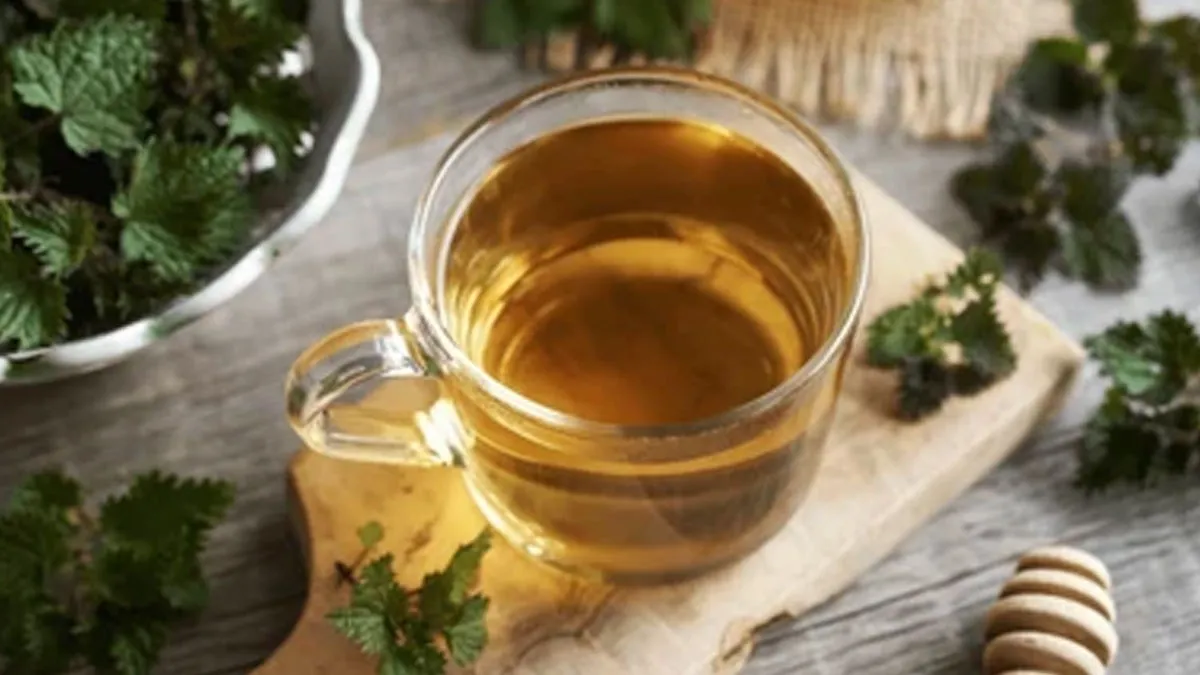
Have you ever brushed against a stinging nettle and instantly regretted it? That sharp, tingling sensation might make you want to stay far away, but this prickly plant has a surprising side. For centuries, stinging nettle has been used in traditional medicine for its powerful health benefits. It is packed with essential nutrients, antioxidants, and bioactive compounds and does more than survive in the wild. It supports joint health, helps regulate blood sugar, and even strengthens the immune system.
Table of Content:-
Health Benefits Of Stinging Nettle
1. Supports Joint Health and Reduces Inflammation

Stinging nettle is widely known for its anti-inflammatory properties, making it a popular remedy for joint pain and arthritis. The plant contains compounds that help inhibit inflammatory pathways in the body, reducing swelling and discomfort. According to a 2014 in vitro study, stinging nettle extracts may possess anti-inflammatory properties, potentially helping to alleviate symptoms of rheumatoid arthritis and osteoarthritis. Some people even use it as a natural alternative to Nonsteroidal Anti-Inflammatory Drugs (NSAIDs).
2. Aids in Blood Sugar Regulation
For those managing diabetes or prediabetes, stinging nettle may help maintain healthy blood sugar levels. Nettle extract can enhance insulin sensitivity and support glucose metabolism. The presence of bioactive compounds, such as flavonoids and lectins, plays a role in reducing blood sugar spikes, making it a potential complementary approach for people looking to regulate their blood sugar levels naturally.
Also Read: Living With Diabetes: A Doctor's Advice On 3 Must-Haves For Patients; Additional Tips To Follow
3. Supports Kidney and Urinary Health
Traditionally, stinging nettle has been used to promote kidney and urinary tract health. The natural diuretic properties of this plant help the body eliminate excess fluids and toxins. This can be beneficial for those experiencing Urinary Tract Infections (UTIs) or kidney-related concerns. Additionally, some research suggests that nettle may help prevent the formation of kidney stones by reducing uric acid buildup.
4. Boosts Immune Function
According to a 2022 study, stinging nettle is rich in vitamins A and C, iron, and various antioxidants, supporting a strong immune system. These nutrients help the body fight infections, reduce oxidative stress, and support overall immune health. The anti-inflammatory and antimicrobial properties of nettle further contribute to its immune-boosting benefits.
5. May Improve Heart Health
Stinging nettle has shown potential in promoting cardiovascular health. It may help lower blood pressure by encouraging blood vessel relaxation and improving circulation. Additionally, nettle is known to contain compounds that may aid in reducing cholesterol levels, further supporting heart health. Regular consumption of nettle tea or supplements might contribute to a healthier cardiovascular system.
6. Supports Healthy Skin and Hair
The benefits of stinging nettle extend to skin and hair health as well. Thanks to its high content of vitamins, minerals, and antioxidants, nettle can help combat acne, reduce redness, and promote a clearer complexion. When applied topically or used as a rinse, nettle may also strengthen hair, reduce dandruff, and support scalp health. Some people even turn to nettle extract as a natural remedy for hair loss.
Also Read: Mustard Seeds: A Simple Kitchen Staple with Incredible Skin and Hair Benefits
7. Helps Alleviate Allergies
If seasonal allergies are a struggle, stinging nettle may offer relief. It contains natural antihistamines and anti-inflammatory compounds that help reduce symptoms like sneezing, itching, and nasal congestion. According to a 2009 study, stinging nettle may help alleviate allergy symptoms by suppressing the production of histamine, a chemical that triggers allergic reactions, and reducing associated inflammation.
8. Supports Digestive Health
Stinging nettle is also beneficial for the digestive system. It can aid in reducing bloating, supporting gut health, and alleviating symptoms of digestive disorders, such as Irritable Bowel Syndrome (IBS). The fibre and antioxidants in nettle contribute to a healthier gut microbiome, which plays a crucial role in digestion and overall health.
How to Incorporate Stinging Nettle into Your Routine
There are various ways to enjoy the health benefits of stinging nettle:
- Nettle Tea: One of the most common ways to consume nettle is by brewing its leaves into a tea.
- Supplements: Available in capsule or extract form, nettle supplements provide a concentrated dose of its beneficial compounds.
- Topical Applications: Nettle creams and oils can be applied to the skin for relief from joint pain or skin conditions.
- Culinary Use: Young nettle leaves can be cooked and added to soups, stews, or smoothies for a nutritional boost.
[Disclaimer: This article contains information for informational purposes only. Hence, we advise you to consult your professional if you are dealing with any health issue to avoid complications.]
Also watch this video
How we keep this article up to date:
We work with experts and keep a close eye on the latest in health and wellness. Whenever there is a new research or helpful information, we update our articles with accurate and useful advice.
Current Version